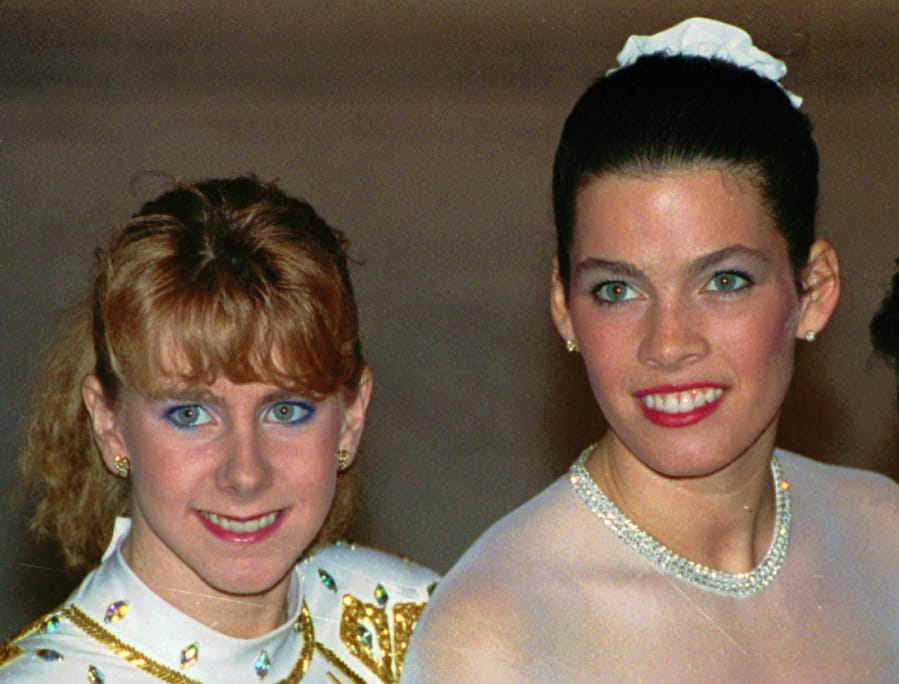Twenty-six years ago, the only blot on Tonya Harding’s figure-skating resume might have involved the time her folks fibbed about her age.
But that wouldn’t make much of a movie, would it?
The origin of Harding’s skating career was part of the conversation in 1992 when friends and family gathered in a Vancouver Heights pizza place to view the Olympic skating finals televised from Albertville, France.
At one point, Albert Harding told The Columbian about his role in his daughter’s earliest adventures on ice. He lied about her age.
“She was 4 years old when she started; actually she was 3,” said Albert Harding, who was living in Vancouver with family members in February 1992.
“We took her to Lloyd Center (in Portland) for lessons, and they had this big sign: no kids under 4 allowed on the ice,” he told The Columbian.
“When they asked me how old she was, I said: ‘She’s 4.'”
Tonya Harding’s blue-collar background is a theme in “I, Tonya,” which has received three Oscar nominations.
It’s also shown up in recent television news specials, produced in the wake of the biopic and during the run-up to the current Winter Games.
Sitting in Albert-ville
Albert Harding (his chair in front of the TV, festooned with red, white and blue balloons, was dubbed Albert-ville) had a specific number to illustrate their financial thin ice.
He recalled the money it took to pay for skating lessons. As he pantomimed a guy checking out a very thin bankroll, he asked: “How about a five-minute lesson?”
Tonya Harding finished fourth in 1992, behind gold medalist Kristi Yamaguchi of the U.S., Japan’s Midori Ito and America’s Nancy Kerrigan. Expectations of a top-three finish and an Olympic medal in 1994, when the Winter Games moved to a new timetable, certainly would have been realistic.
We all know how that turned out.
After that 1992 competition, Albert Harding — who died in 2009 — had an interesting take on his daughter’s finish. He was asked what he would have told her if he’d been in the Olympic arena that night.
“Congratulations,” he responded.
“How many million people are there in the whole entire world? And she’s No. 4,” he told The Columbian. “That’s not bad.”
Off Beat lets members of The Columbian news team step back from newspaper beats to write the story behind the story.




